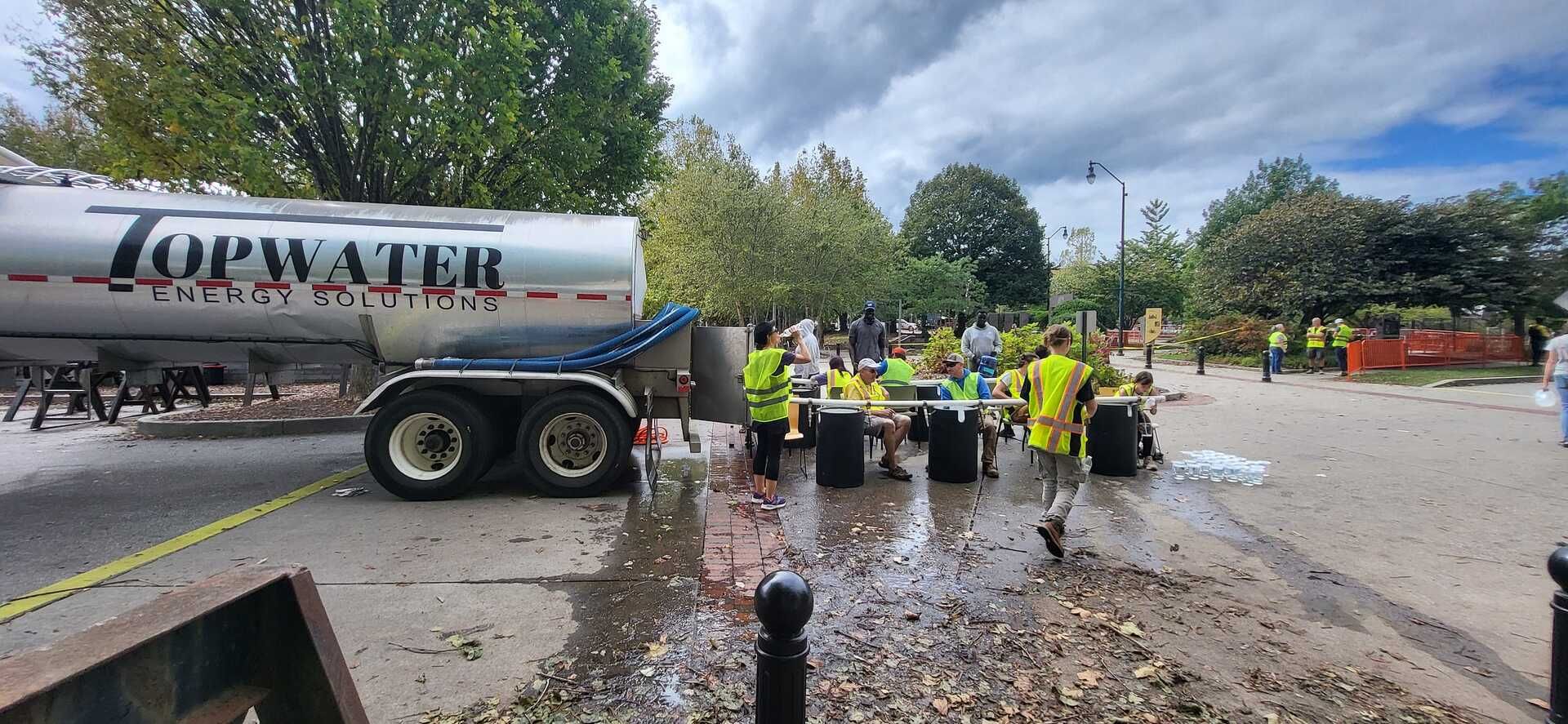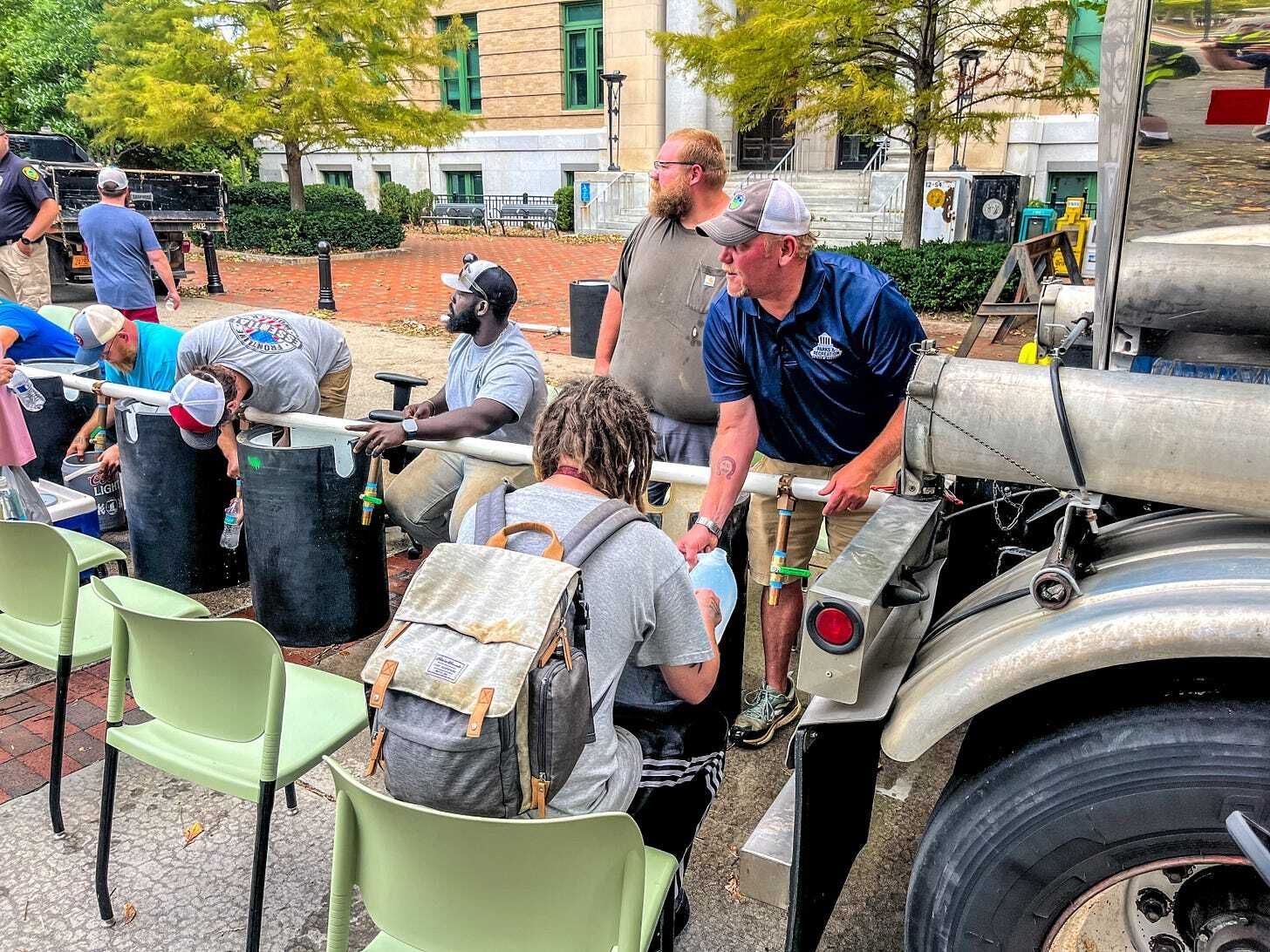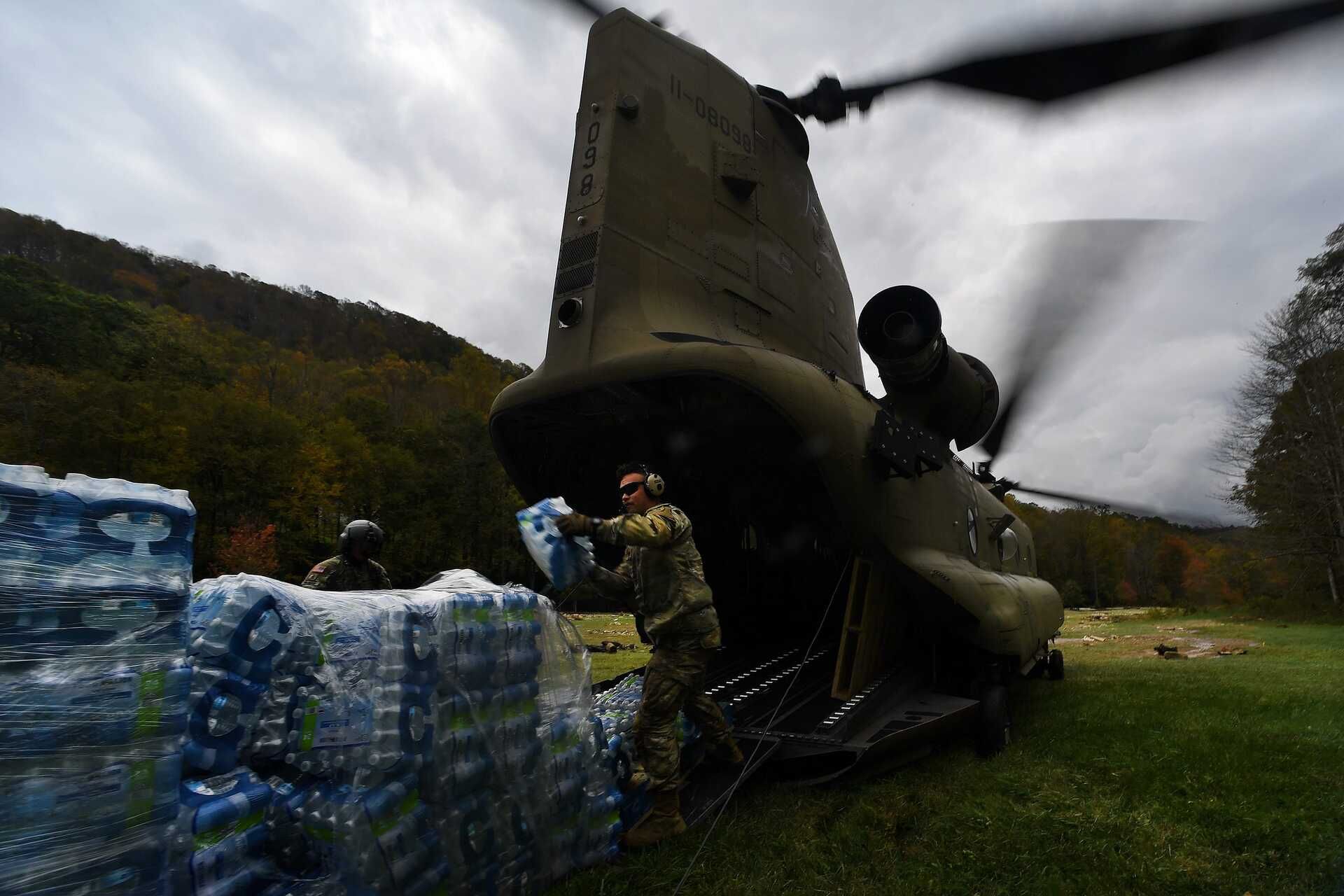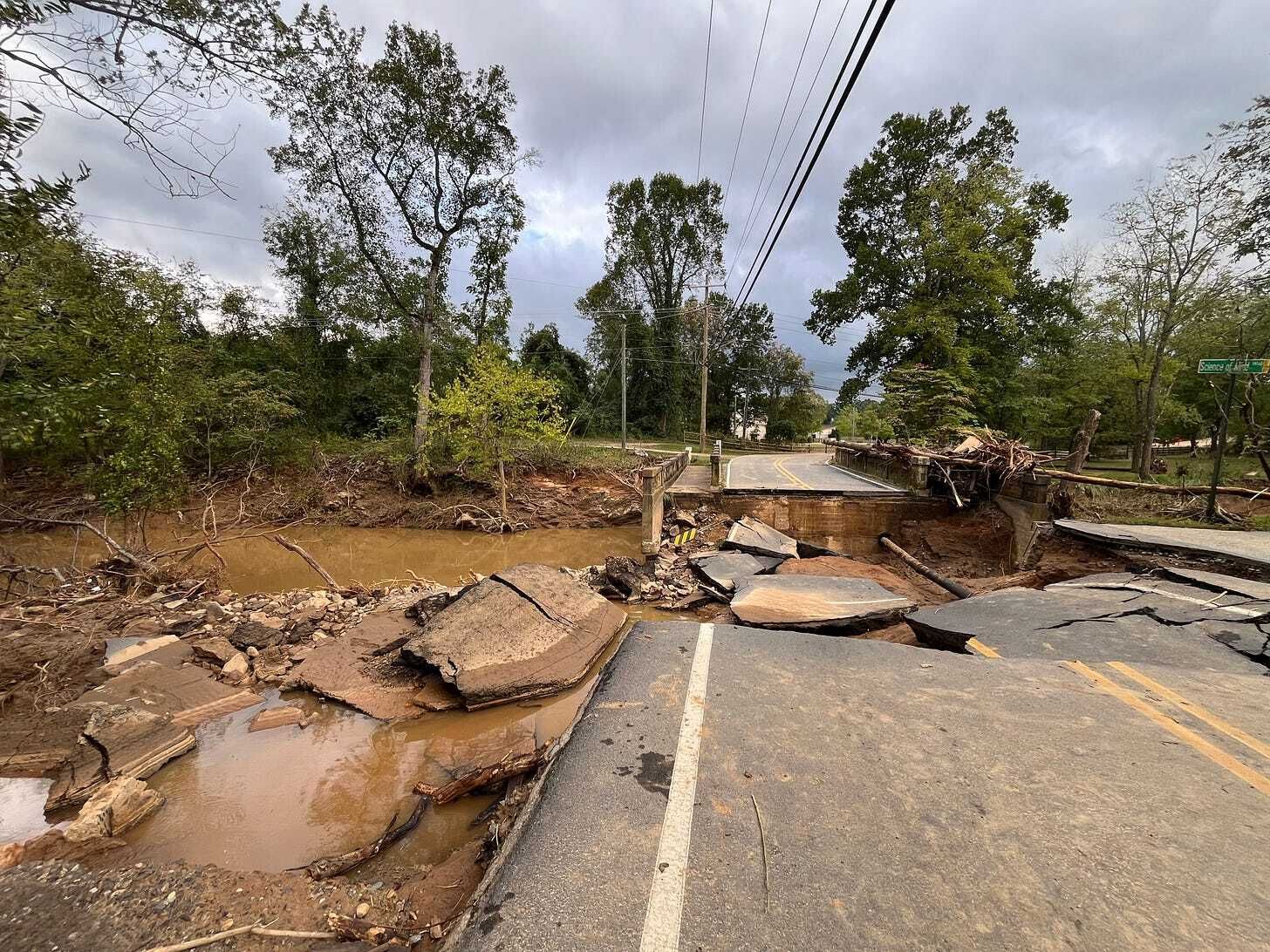NOTE: This week, I’m turning the newsletter over to Jessica Wakeman, an Asheville-based journalist. As I’ve said before, this is not the best place to come to find out the latest news about the aftermath of tropical storm Helene. For that, seek out vetted information from trusted sources like local media or official government channels. Thanks for your support of this newsletter for making stories like this possible, and thank you for supporting the people in Western North Carolina whose lives have been upended by this storm.

Sunday, September 29 was the last time I took a shower. If I had known it’d be the last one that I’d be taking for a while, I would have savored it more.
I’ve never gone so long without bathing, nor have I ever used baby wipes or deodorant wipes for more than a few days of a camping trip. Yet with the absence of running water in Asheville, and with clean water at a premium for drinking and dish washing, wipes are the most efficient way to achieve some semblance of ablutions. Still, I smell faintly of body odor, thanks to last week’s 70-80 degree heat. Until my husband helped me wash my long hair with bottled water on Monday night, it looked, predictably, greasy. I plopped my “West Asheville Library Friend” baseball cap on when going out in public.
Everyone talks about Helene as if the tropical storm was a discrete event on September 26. But it had been raining in Asheville for days before then, and sometimes it rained hard. When Helene hit Western North Carolina that Thursday, my husband and I were safe at home in West Asheville. Yet I don’t remember much about the precipitation, which the North Carolina State Climate Office measured at almost 14 inches at Asheville Regional Airport to our south. The gusty winds — the kind of wind you could hear blowing — and the threat of falling trees, were scarier. Not until the morning of September 28 did we understand the scope of the French Broad River’s flooding. We live up a steep hill, so we are fortunate and grateful the flooding didn’t reach our house. At least two neighbors at the bottom of the hill had their homes completely flooded, and a number of local businesses (DayTrip and Bow Howdy) flooded out, too. There is no other word than “surreal” to describe what it was like to see the stop sign at the end of my street disappear.
Some in Asheville lost water during Helene or immediately after. We’re lucky to have had running water for a couple of days. But since the morning of September 29, the tap sputters sadly and emits the tiniest of drips. One can tell the faucet is trying so hard to produce water, but it simply cannot. It’s impacted everything from washing our hands, scrubbing dirty dishes, flushing the toilets, and bathing.
The irony in Western North Carolina is that right after Helene hit, there was water everywhere. Now water is the most precious resource we have.
On Monday Sept. 30, my husband and I waited in line for an hour outside Blue Moon Water, a bottled water supplier in West Asheville. We bought two 5-gallon tubs of water for $14 each, along with a pallet of water bottles. At that time, obtaining water felt more like a search mission. Drinking clean water — either boiled or fresh from a bottle or can — felt like something to savor. In the day’s heat, drinking water was a tiny pleasure.
Over the past week, water donations, along with diapers, toilet paper, cleaning supplies, and nonperishable foods, have been flowing into Asheville. Much of it is being ferried to residents with less access to transportation, as well as the harder-hit locations in Western North Carolina. (For a list of ways you can donate resources, time, and money, here’s a guide from the journalists at Blue Ridge Public Radio, who are among many reporters who have been working tirelessly over the last two weeks.) We have truly seen the community and the country respond with abundance. At present, there are stacks and stacks of free bottled water all over the city — some set up by Buncombe County or the City of Asheville, as well as individual churches and nonprofits. And a lot of free water is being shared by folks piling it up on their front porch or at the end of their driveway. We’ve availed ourselves of a water pallet from a neighbor who appeared to have done some kind of Sam’s Club or Costco run.
My husband and I did our first grocery shop this weekend at Harris Teeter and saw plenty of bottled water for sale, so we bought some. I understand that we are more well-resourced than a lot of families, and we don’t want to take free resources that others may need more.

The number of times I’ve talked about flushing toilets over the previous 12 days has been unreal. Early on, my husband and I decided that one of our toilets would be the #1 toilet and the other — next to the bathtub we filled with water while we still had it — would be the #2 toilet. This seemed logical. We used a mixing bowl to fill up the tank half-way every time we needed to flush. But then, because the universe has a rotten sense of humor, I immediately got my period. For privacy’s sake, I decided to just hoard one bathroom for myself. My husband is a wise man on the matter of menstrual vexations. He conceded this to me.
Some friends who live up the street had been coming by regularly to charge their devices, since our house was one of the fortunate ones where the power had come back on. One night, my friend had to use the bathroom and opted to just squat outside in my side yard. I assured her that she could just use our indoor facilities. But she insisted that it’s now considered polite not to use people’s bathrooms and their non-potable water. To her, it was courteous to pee outside.
(I absolutely am not on board with this apparently-new etiquette, despite its good intentions, and will continue to use indoor bathroom facilities whenever possible.)
City-wide sanitation issues, particularly the lack of warm water to wash hands, increasingly worries me. This entire region is going to need Port-a-Potties and dry toilets. We are going to need a lot more Port-a-Potties and dry toilets. I’m washing my hands with bottled water, in something of a delicate open-dip-splash balancing act. After more than a week of this, I’ve realized how much water we waste by splashing around. This weekend at Harris Teeter I picked up a spray bottle, and I’m hoping that spritzing water might be more sustainable, for hand washing at least, in the long term.

I remarked to a friend recently that it’s almost like every couple in Western North Carolina is brand-new again, because we’re all learning to negotiate our domestic lives post-Helene. Are we going to rig up a solar camp shower, or are we going to use washcloths and wipes? Will we wash dishes, or will we use paper plates and plastic silverware? How do you even wash dishes when you can’t use tap water? Empty water bottles are piling up and need to be recycled. And I need to do laundry. Badly. Should we schlep to a friend’s house who has a well? Or am I doing this by hand, at home, with a bucket? And where is that bucket anyway?
Asheville is trying to repair its water system, which can be described as “janky” even when it’s not a natural disaster. Officially, the city government says it will take several weeks for running water to return. But non-officially, I’ve heard it is more likely that fixing the system city-wide could take several months. There are a lot of folks from Florida who live in Asheville, and those who have lived through many previous hurricanes say that “several weeks” is too optimistic a timeline for getting running water again.
I don’t know who to believe about that, but I do appreciate anything and everything that our Water Resources workers are doing. I’ve seen people burst into applause when they see power company workers drive down the street. And that’s what I’ll be doing, too, when our water comes back on, whenever that may be.
